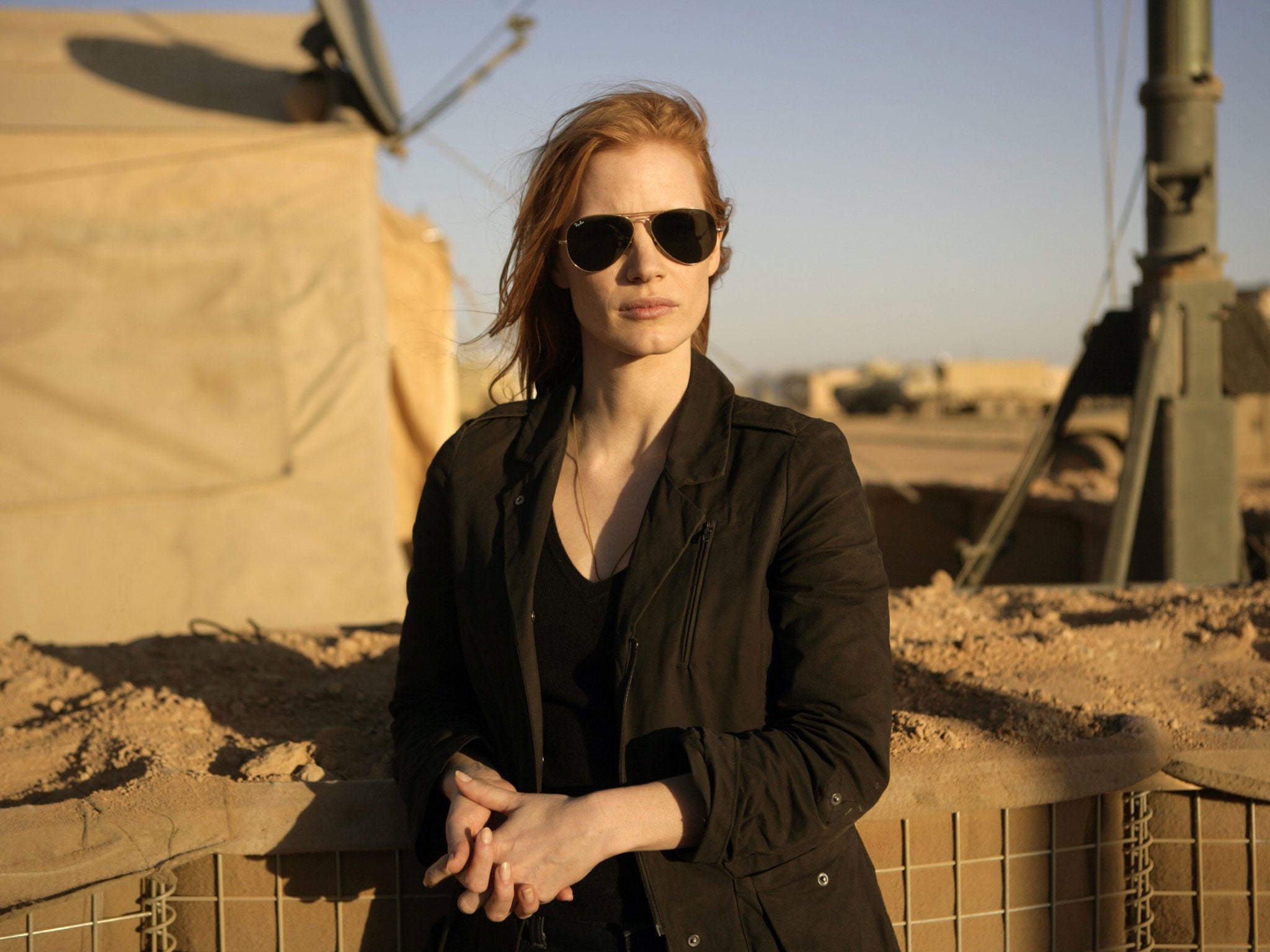Zero Dark Thirty (15)
Resolute handling of a determined manhunt

Zero Dark Thirty is a gripping procedural thriller detailing the decade-long investigation which led to the military strike on Osama bin Laden's residential compound in Pakistan in 2011. It opens in a squalid bunker on a CIA "black site" in Pakistan in 2004, where a suspected Al-Qaeda middle-man is subjected to what the Bush administration euphemistically called "enhanced interrogation techniques".
"There's no shame if you want to watch through the monitor," the interrogator (Jason Clark) tells Maya (Jessica Chastain), an intelligence analyst assigned to the agency's Islamabad bureau. But Maya elects to stay in the room and confront the sight head-on. So too the film itself, which hopes to offer an unmediated, judgement-neutral representation of events.
Does it in some way glamorise military action? Well, yes. It's a movie, for one thing, and it stars Jessica Chastain for another. It is tightly edited and the action is compressed. But it is also sober, and trusts that there is enough drama, without having to manufacture more. It isn't much interested in its characters' private lives or personal histories.
If there is something in Maya's past to explain why she should remain so dogged in the hunt for Bin Laden, when everyone else in the CIA appears to move on, then the film doesn't care to tell us about it.
Instead, Mark Boal's screenplay – "Based on first-hand accounts of actual events", as the title-card puts it – is fascinated with intelligence-community jargon and "tradecraft". It is a workplace drama, about professionalism, pragmatism, military and government bureaucracy, and how things got done.
As is entirely right, it is up to the audience to pronounce upon the morality.
Join our commenting forum
Join thought-provoking conversations, follow other Independent readers and see their replies
Comments
Bookmark popover
Removed from bookmarks